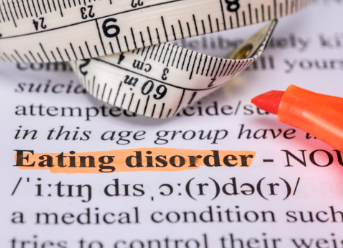Published by: HigherED Jobs
Written By: Leah Jackson

Starting college is often viewed and portrayed as an exciting, fun-filled time — a rite of passage for young adults. While this is true in many cases, as Erin Birely, LCPC of The Renfrew Center, reminds us, “this period is really marked by transition” as well.
Birely, a licensed clinical professional counselor who specializes in treating clients struggling with eating disorders, reminds us that transition is a known risk factor for eating disorders, which are common among college students. “A study from the National Eating Disorders Association found that between 10-20% of women and 4-10% of men in college suffer from an eating disorder,” she says.
Eating disorders, according to the National Institute of Mental Health, are “serious and often fatal illnesses that are associated with severe disturbances in people’s eating behaviors and related thoughts and emotions.”
They can have serious effects on a student’s mental and physical health, academic performance, and social engagement.
As colleges and universities grapple with the student mental health crisis, eating disorders are another related concern to watch out for. Let’s examine how transitioning into a college environment can be a trigger for eating disorders and how you can aim to prevent and address them among your student population — on both an institutional and individual level.
The Perfect Storm
“College can create a perfect storm of biological, social, and cultural factors that contribute to the development and maintenance of eating disorders,” Birely explains. “On an individual level, many students have left home for the first time or have made some of the biggest decisions of their lives. There are also new social constructs and ‘rules’ to get used to.”
Read the full article here.



